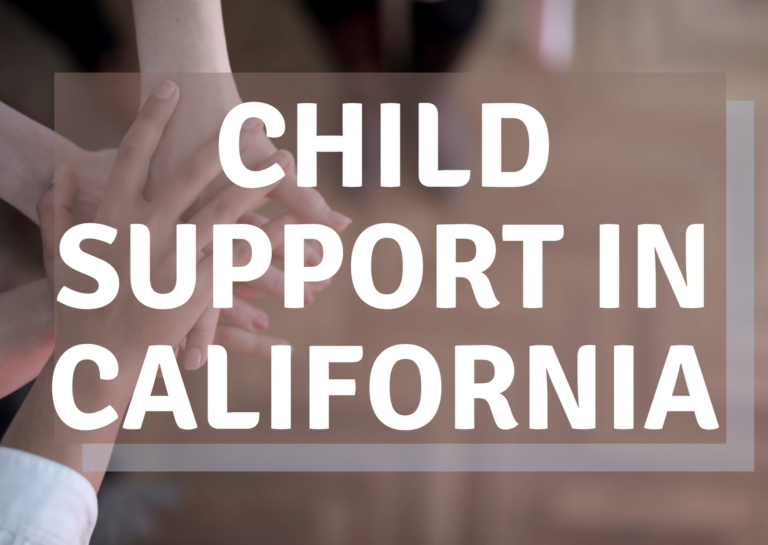Overview of Child Support in California
Both parents are legally obligated to provide financial support for their children to cover a child’s living and medical expenses. This payment is called “child support.” Here is an overview of the factors a court considers when deciding a request to award or modify child support, the Department of Child Support Services’ role in the process, and the penalties for failing to comply with a child support order.
Factors the Court Considers When Determining Child Support
The court considers multiple factors when ruling on a request for child support. The main factors are each individual parent’s income and expenses, and the amount of time the minor spends with each parent. Other factors often taken into consideration include support obligations for children from other relationships, retirement contributions; and required traveling for visitations with the child.
California has a statewide guideline for determining child support payments that factor the above considerations into the analysis and determination. California judges rely heavily on the guidelines when arriving at a child support determination. Accordingly, if parents cannot agree on child support, the judge will decide the child support amount based primarily on the guidelines.
Notably, the income of either parent’s subsequent spouse is not considered when determining or modifying child support, except in an extraordinary case where excluding that income would lead to extreme and severe hardship to the children.
Collection Of Child Support Monies Owed
The California Department of Child Support Services (DCSS) plays a significant role in the child support collection process. Various activities are undertaken to achieve its objectives including locating parents obligated to pay support, establishing parentage, obtaining child support court orders, and maintaining records of the transactions. The DCSS provides assistance to both parents through all steps of the process.
Penalties For Failing To Comply With A Child Support Order
A child support order is a legal court order. Parents who refuse to pay or delay paying their child support face adverse consequences that can include:
• Suspension of their driver’s license or passport
• Revocation of professional and occupational licenses
• Bank and property liens
• Civil contempt charges
Also, by California state law, unpaid court orders get charged 10% interest.
Modifying The Order
At any time, either parent or the child’s legal guardian can ask for a change (called a “modification”) to increase or decrease the amount of court-ordered child support. You should ask for a modification if:
• You are laid off or fired from your job
• You get a new or additional job
• Your income or the other parent’s income increases or decreases
• Custody or visitation changes
• Your family size changes
• You become disabled
• You go to jail or prison
• You are deployed to active military service
As a general rule, modification may be granted if the support order would change by 20% or $50, whichever is less.
Closing the Case
There are many reasons why a child support case can be closed. The most common is that the youngest child reaches the age of 18. At the time of closure both parents are notified by the child support agency, and the case stays open for 60 days after this notification to allow time for challenges to the determination. All records are maintained for at least four years and four months under federal law.
As legal document preparers, Lynx has extensive experience with the documentation that needs to be filed when a party seeks to obtain or modify a child support order. Using our services will save you thousands of dollars in attorney’s fees you otherwise would have spent to complete the process. Please contact us at 888-441-2355 or [email protected] with any questions or if you would like to start a work order.

